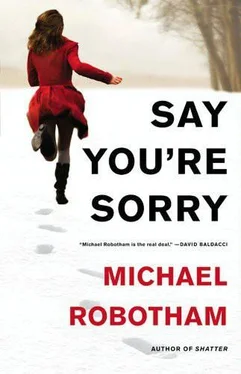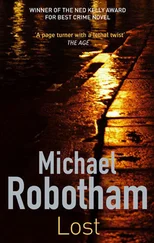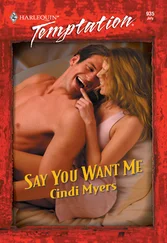Michael Robotham - Say You're sorry
Здесь есть возможность читать онлайн «Michael Robotham - Say You're sorry» весь текст электронной книги совершенно бесплатно (целиком полную версию без сокращений). В некоторых случаях можно слушать аудио, скачать через торрент в формате fb2 и присутствует краткое содержание. Жанр: Триллер, на английском языке. Описание произведения, (предисловие) а так же отзывы посетителей доступны на портале библиотеки ЛибКат.
- Название:Say You're sorry
- Автор:
- Жанр:
- Год:неизвестен
- ISBN:нет данных
- Рейтинг книги:4 / 5. Голосов: 1
-
Избранное:Добавить в избранное
- Отзывы:
-
Ваша оценка:
- 80
- 1
- 2
- 3
- 4
- 5
Say You're sorry: краткое содержание, описание и аннотация
Предлагаем к чтению аннотацию, описание, краткое содержание или предисловие (зависит от того, что написал сам автор книги «Say You're sorry»). Если вы не нашли необходимую информацию о книге — напишите в комментариях, мы постараемся отыскать её.
Say You're sorry — читать онлайн бесплатно полную книгу (весь текст) целиком
Ниже представлен текст книги, разбитый по страницам. Система сохранения места последней прочитанной страницы, позволяет с удобством читать онлайн бесплатно книгу «Say You're sorry», без необходимости каждый раз заново искать на чём Вы остановились. Поставьте закладку, и сможете в любой момент перейти на страницу, на которой закончили чтение.
Интервал:
Закладка:
Dale Hadley sits in the back, staring at his mobile phone, willing it to ring. He’s trying to remember every word that Piper said to him, replaying their conversation as though it might give him a clue. A short while ago he was consumed by thoughts of his wife’s betrayal. Forgotten now.
“Someone will tell Sarah, won’t they?” he asks. “The police will call her.”
“I’m sure they will.”
“You told Piper to keep moving. Should we have told her to stay put?”
“She has to keep warm.”
“But how will they-”
“The police can track the signal even if she’s moving.”
He nods, looking at his phone again.
“Can I ask you a question?” I ask. “Did Piper ever meet Phillip Martinez?”
“Emily’s father-I don’t know. Emily used to live with her mother. Her father was in the States. He moved back after Amanda had a breakdown.”
Still driving, Ruiz interrupts, rattling off the background details that Capable Jones uncovered. Phillip Martinez was born in Manchester in 1972 and went to a selective grammar school, before studying medicine at King’s College in London and doing a postgraduate research degree in Boston.
“He didn’t practice,” says Ruiz. “Instead, he focused on medical research, working for pharmaceutical companies and hospitals in Chicago and Hawaii before he took up a position in Oxford. Capable talked to one of his former lecturers, who said Martinez didn’t lack confidence. He was convinced he was going to win a Nobel Prize. It was just a matter of time.
“That was until he blotted his copybook. Five years ago, working in Honolulu, he faced allegations that he falsified data on biomarkers and treatments for cancer in two journal articles. He denied it and later blamed a research graduate who was working with him. He claimed she doctored the figures. She lost her job. Left a suicide note. Disappeared into the sea.”
“What about Martinez?”
“The Office of Research Integrity conducted an inquiry, but the findings were inconclusive. He had to pay back two hundred thousand dollars in research grants. That’s when he moved back to England.”
“What about Mrs. Martinez?”
“Amanda Lowe grew up in London. She was a freewheeling hippie type; a rampant socialist at university, according to her friends, but she settled down when she married. It was an odd sort of match. The good doctor is a raging conservative, controlling, pedantic, apparently quite brilliant. The marriage lasted nine years until it broke down around the time of the research scandal. Initially Martinez didn’t fight for custody, but he came back again when his wife had a breakdown. He accused Amanda of substance abuse and alcoholism; subpoenaed her medical records. Her two stints in a psych hospital swayed the court. Emily went to her father.”
The uneasy sense of disquiet within me has bloomed like a noxious weed. Martinez studied medicine. He would have done a surgical rotation. According to Dr. Leece, whoever mutilated Natasha had some knowledge of surgery or a limited degree of medical training.
Martinez is a research scientist. He’s accustomed to controlling his experiments, knowing the variables, removing them. Scientific research is about questions and observations, striving for facts unencumbered by bias or distortion. It’s about objectivity, reproducibility, exactness and demonstrability.
His model trains are another example of his meticulousness. He fashioned a miniature world in precise detail where he can control everything, the lights, the switches, the trains, the timetables… Most psychopaths build rich fantasy worlds in their heads-he created one in real life.
The Range Rover floats through the outskirts of Oxford, the streets surprisingly empty. Most people have left for the holidays. The stragglers are getting off buses and carrying home provisions.
Ruiz pulls up in front of the house. The driveway is empty. Nobody answers the doorbell. I check the garage. It’s in darkness.
“Nobody’s home,” yells Ruiz, having tried the back door.
I look at my watch. It’s four o’clock on Christmas Eve.
Emily gave me her mobile number. I find her contact details and press the call button. She’s not answering. Her voicemail triggers.
“Hi, it’s me. I’m obviously doing something very cool and exciting, which is why I can’t answer your call. Leave me a message and I may or may not get back to you. After the tone… Ciao.”
I turn to Ruiz.
“Any ideas?”
“She could be working?”
Directory assistance patches me through to the pharmacy. A woman answers. Busy. Flustered.
“Is Emily Martinez working today?” I ask.
The woman sighs. Disgusted. “She didn’t show up for work; left us short-handed.”
“Did she call?”
“No. Are you a friend of hers?”
“More of an acquaintance.”
“Well, if you see her, tell her she’s fired.”
Idiot! Stupid, stupid girl!
I dropped the phone. My hands were so cold that I couldn’t close my fingers. And instead of catching it, I stuck out my foot and kicked it into a puddle. The screen is cracked. Nothing lights up.
I’ve broken it. Shit! Shit! Shit!
I hold the button down. Nothing. I slap the handset against the palm of my hand. It’s dead.
How are they going to find me now?
I look around, trying to get my bearings. The fog has lifted and below me, through the trees, half a mile from here, there is a plowed field streaked with snow. An electricity pylon rises from the mud and ice, strung with power cables. Power cables lead to places where people live. They thread towns together.
I head down from the ridge, climbing over rocks and weaving between trees. The going is slow because I don’t want to fall. There is wood everywhere, dead limbs and branches scattered over the ground.
A misty rain has started falling. Droplets cling to the shoulders of the overcoat like glass beads sewn onto the wool. My feet have stopped being numb. Now they’re burning and itchy.
The field had seemed nearer. I can’t see it any more. All the trees look the same. I panic for a moment, thinking I’ve lost my bearings and have been walking in circles. But I’m still heading down the slope.
The man called Joe said the police were coming. He sounded nice. He told me to keep moving, to stay warm.
The trees grow thinner. The field is in front of me. I can see the electricity pylon and a line of distant trees that could be a road. Hope flares in my chest. A road will lead to a house or a farm.
There’s a fallen tree. I clamber onto the log and use a branch to balance as I climb the fence. My overcoat is too long. I take it off and throw it over, jumping after it.
Instead of being muddy, the ground is hard. Frozen. The rain is heavier now, hitting my cheeks like grains of sand kicked up by the wind. The sky has grown darker and the temperature is dropping.
Crossing the field, leaping between plowed ruts, I reach the pylon and I stand for a while, wrapped in the overcoat, trying to get my bearings. I look up at the metal spars and beams, the hammered rivets. The electricity cables sweep over my head, descending and then rising to another pylon and then another.
I don’t like being in the open. George could be watching me from the ridge. Veering away from the pylon, I head towards the line of trees and climb another fence to a narrow farm track, dotted with puddles. I can see tire treads in the mud.
Peering into the gloom, I look beyond the curve in the road and can make out the angled roofline of a house or a barn just visible against the sky. I want to run, but the air has become like water and I feel like a greased swimmer, crossing the Channel.
Everything hurts. Walking. Breathing. Swallowing. I follow the road past the bend and come to an old mailbox and then a house in the middle of an overgrown orchard.
Читать дальшеИнтервал:
Закладка:
Похожие книги на «Say You're sorry»
Представляем Вашему вниманию похожие книги на «Say You're sorry» списком для выбора. Мы отобрали схожую по названию и смыслу литературу в надежде предоставить читателям больше вариантов отыскать новые, интересные, ещё непрочитанные произведения.
Обсуждение, отзывы о книге «Say You're sorry» и просто собственные мнения читателей. Оставьте ваши комментарии, напишите, что Вы думаете о произведении, его смысле или главных героях. Укажите что конкретно понравилось, а что нет, и почему Вы так считаете.












